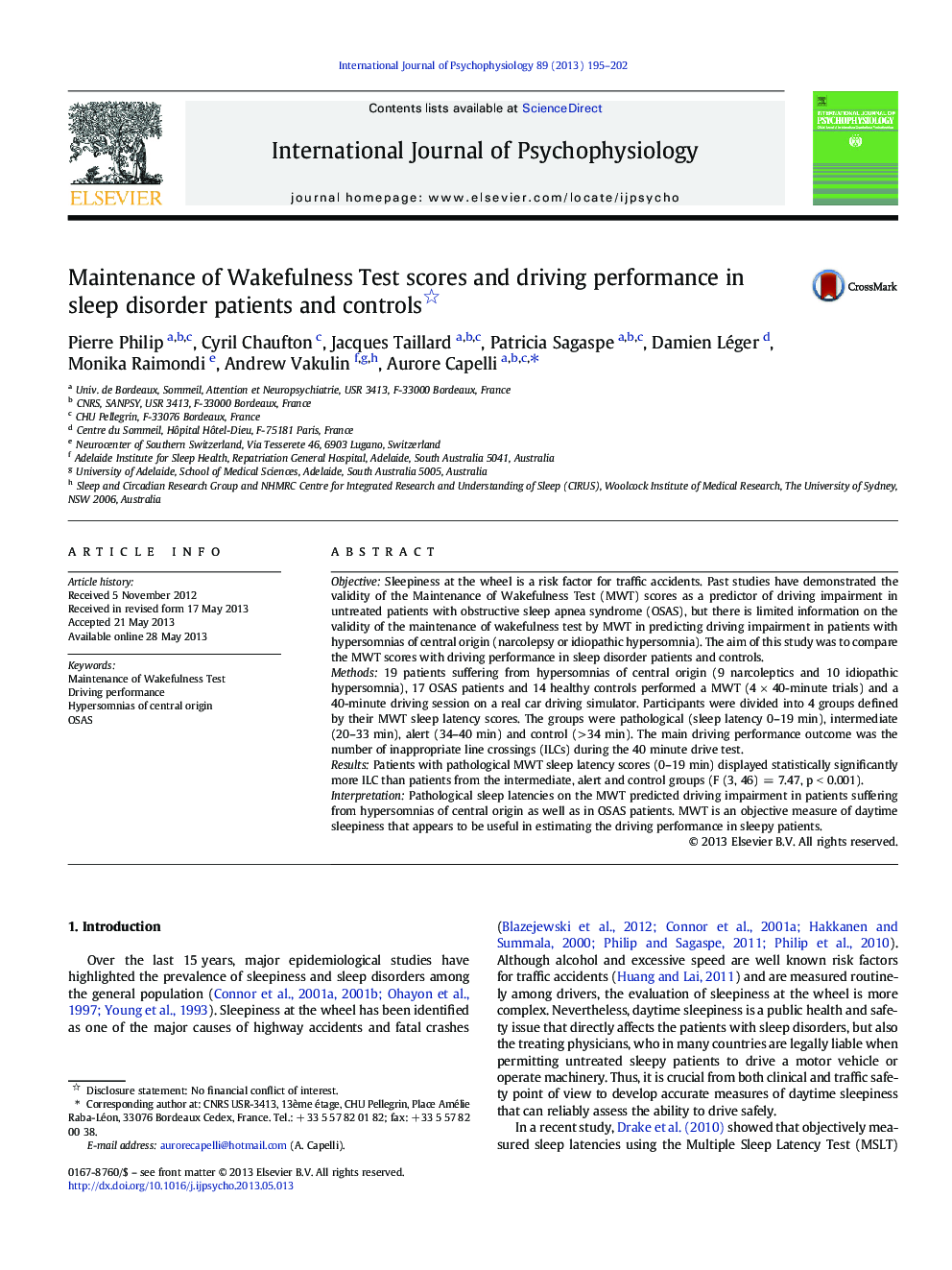| کد مقاله | کد نشریه | سال انتشار | مقاله انگلیسی | نسخه تمام متن |
|---|---|---|---|---|
| 930383 | 1474428 | 2013 | 8 صفحه PDF | دانلود رایگان |

• Maintenance of Wakefulness Test (MWT) is an objective measure of daytime sleepiness.
• MWT is useful to estimate the driving performance in sleepy patients.
• MWT works for patients with excessive daytime sleepiness of different origins.
• MWT permits to establish a cutoff value for deterioration in driving performance.
ObjectiveSleepiness at the wheel is a risk factor for traffic accidents. Past studies have demonstrated the validity of the Maintenance of Wakefulness Test (MWT) scores as a predictor of driving impairment in untreated patients with obstructive sleep apnea syndrome (OSAS), but there is limited information on the validity of the maintenance of wakefulness test by MWT in predicting driving impairment in patients with hypersomnias of central origin (narcolepsy or idiopathic hypersomnia). The aim of this study was to compare the MWT scores with driving performance in sleep disorder patients and controls.Methods19 patients suffering from hypersomnias of central origin (9 narcoleptics and 10 idiopathic hypersomnia), 17 OSAS patients and 14 healthy controls performed a MWT (4 × 40-minute trials) and a 40-minute driving session on a real car driving simulator. Participants were divided into 4 groups defined by their MWT sleep latency scores. The groups were pathological (sleep latency 0–19 min), intermediate (20–33 min), alert (34–40 min) and control (> 34 min). The main driving performance outcome was the number of inappropriate line crossings (ILCs) during the 40 minute drive test.ResultsPatients with pathological MWT sleep latency scores (0–19 min) displayed statistically significantly more ILC than patients from the intermediate, alert and control groups (F (3, 46) = 7.47, p < 0.001).InterpretationPathological sleep latencies on the MWT predicted driving impairment in patients suffering from hypersomnias of central origin as well as in OSAS patients. MWT is an objective measure of daytime sleepiness that appears to be useful in estimating the driving performance in sleepy patients.
Journal: International Journal of Psychophysiology - Volume 89, Issue 2, August 2013, Pages 195–202